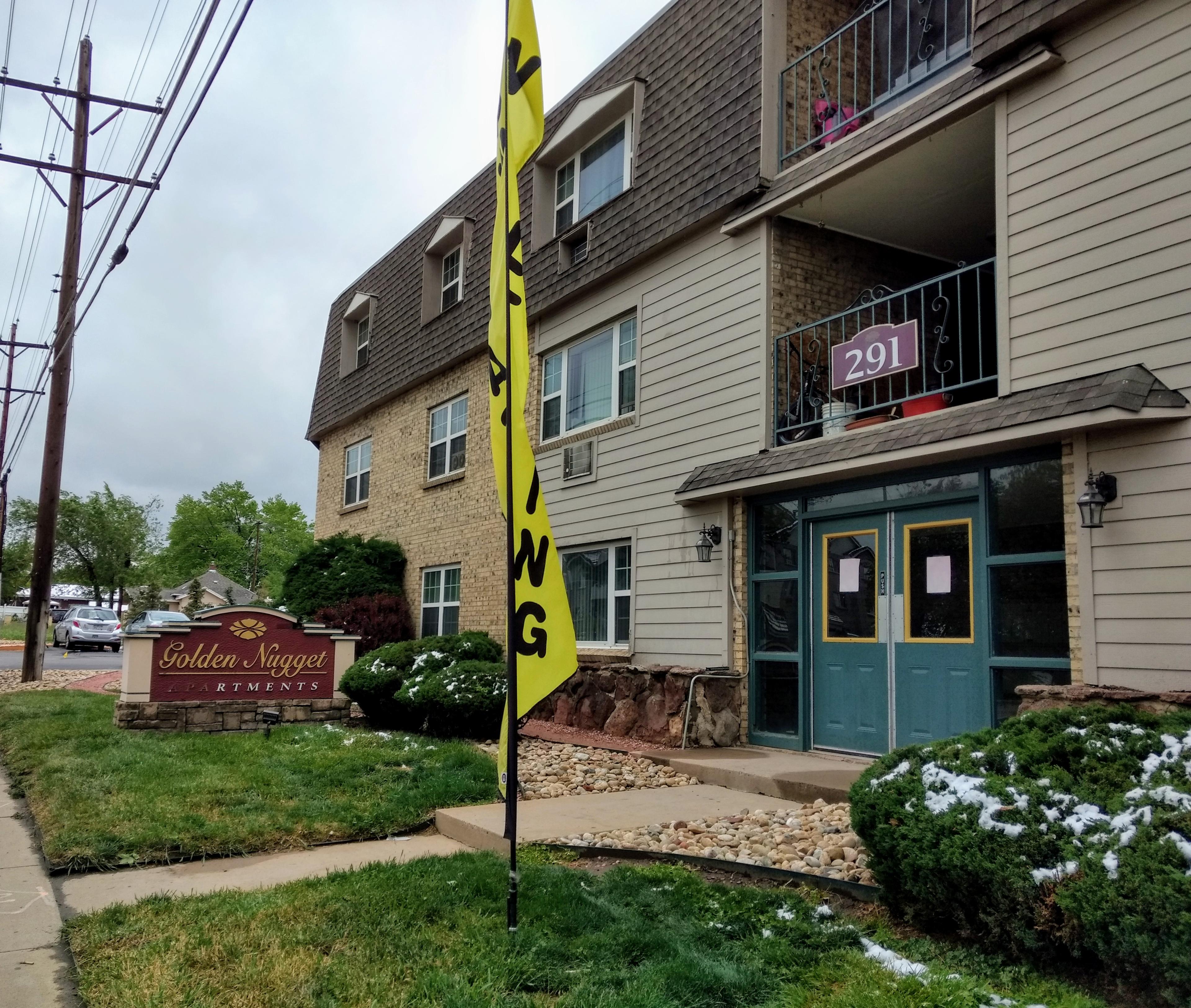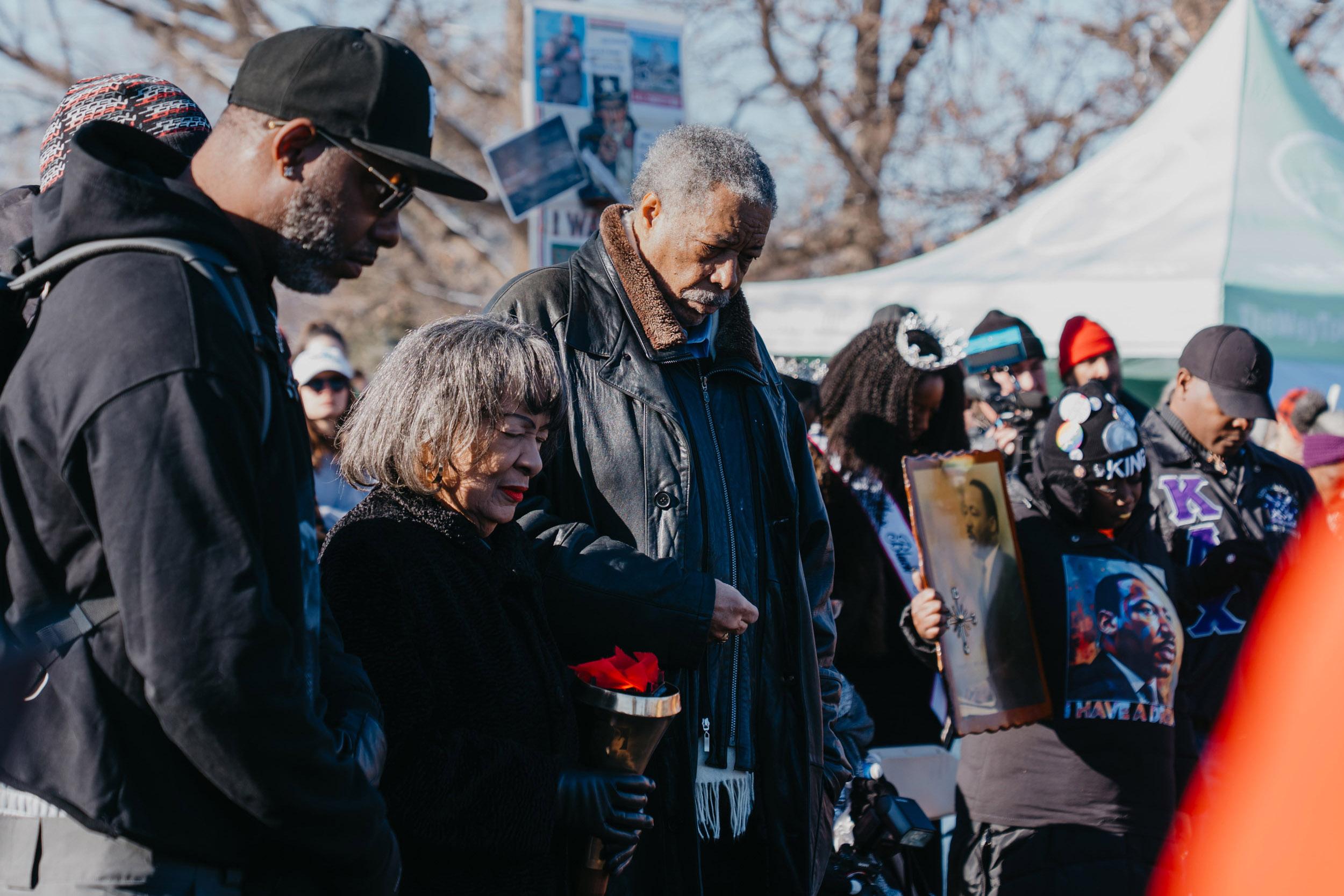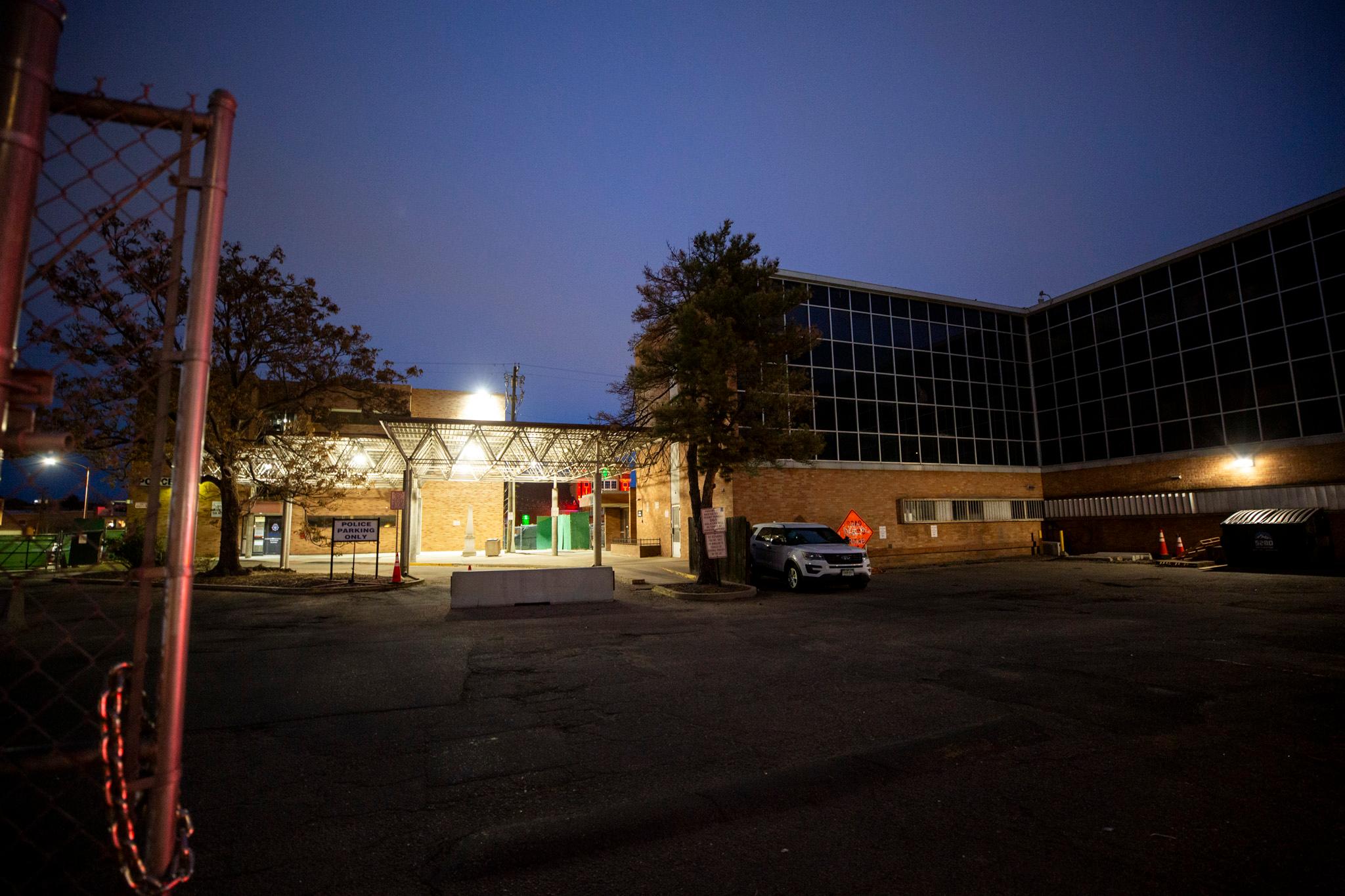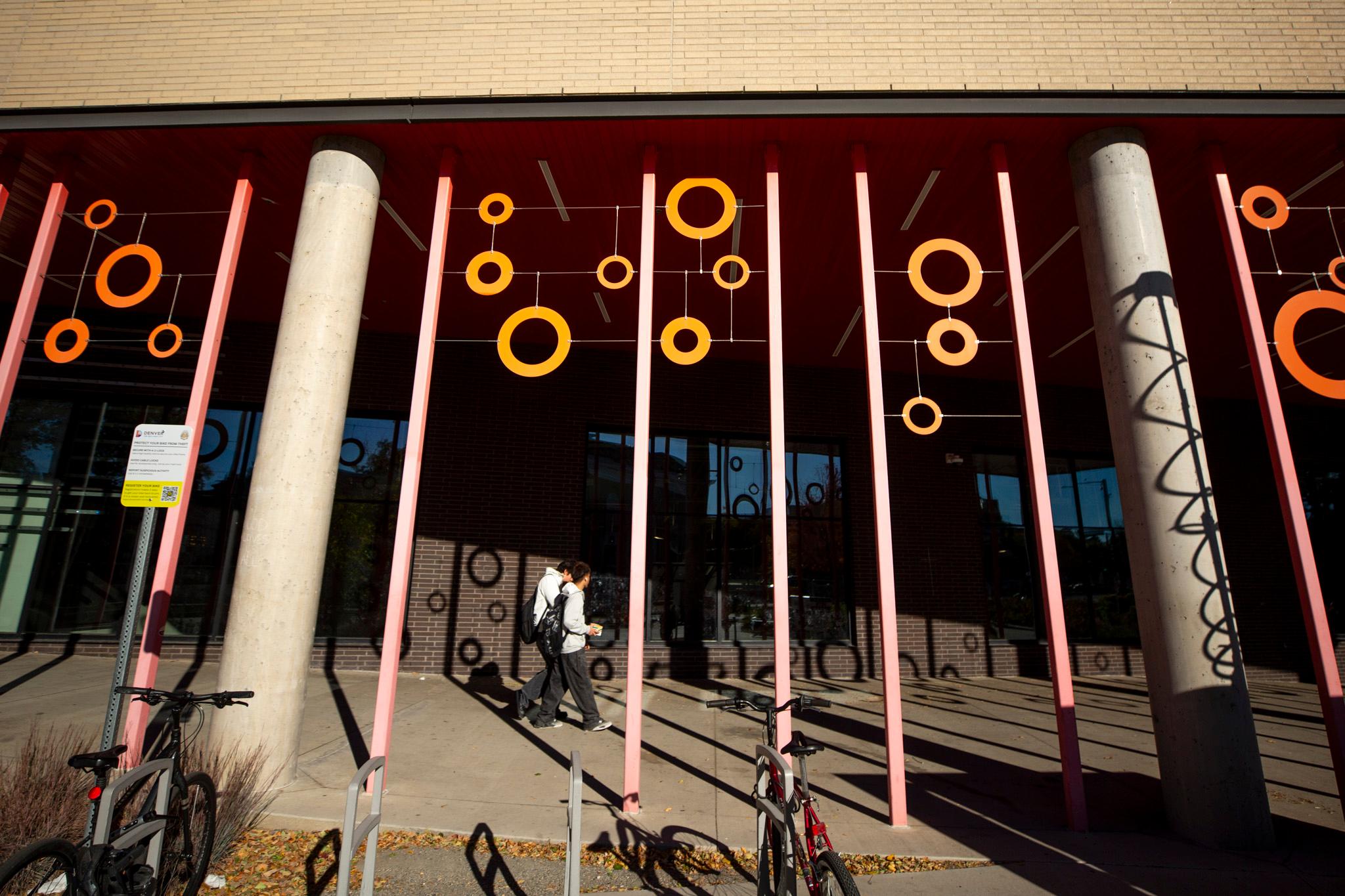She wasn't alone in having to do without hot water or heat for weeks, then to struggle to eradicate bed bugs. But Amber Celaya is unusual among residents of an Englewood apartment complex: She's taking the Denver-based company that owns the place, SKM Management Co., to court.
Celaya said she learned from her neighbors at the 204-unit Golden Nugget Apartments of problems with heat, water and pests that long preceded the three months or so she lived there last year.
But lawyers are expensive -- Celaya's attorney in her Arapahoe County civil case will be paid only if she wins. Also daunting for many, Celaya said, was fear that speaking up would end with them being forced to leave a place, however substandard it might be, and searching for a new home in a tough market. Celaya, who'd been paying about $800 a month for her Golden Nugget apartment on Belleview near Broadway, didn't consider filing suit until she had found a new place for her and her 12-year-old son.
Finding housing wasn't easy on Celaya's wages working six days a week as a restaurant server. According to the Apartment Association of Metro Denver, the median rent during the first quarter of 2019 was $1,431. Celaya moved in December to Fifty Eight Hundred, a below-market apartment complex on Alameda developed by Lakewood's housing authority. She'd been on the wait list there since before moving into Golden Nugget.
"Housing is really expensive," Celaya said. "It's so expensive out here that I feel that people are just stuck. You can be in a shelter or you can be in a bug-infested household."
What Celaya heard from her neighbors sounded familiar to Jack Regenbogen, an attorney and policy advocate for the Colorado Center on Law and Policy. Regenbogen, who is not involved with Celaya's case, said tenants "relegated" to substandard housing often include people who aren't just on low incomes, but who have criminal records or bad credit that make it even more difficult for them to find a place to live.
"Realistically, the only recourse that most tenants have when their rights have been violated is to find a lawyer," Regenbogen said.
But his nonprofit has found that Colorado has not quite one legal aid lawyer for every 30,000 people living in poverty. Regenbogen said that puts Colorado among the bottom five states when it comes to representation for the poor.
During this past legislative session, lawmakers passed measures strengthening tenants' hands. One of the bills signed into law by Gov. Jared Polis on May 20 and going into effect in August includes provisions meant to prevent landlords from kicking tenants out or taking other retaliatory steps against renters who speak up when they believe their landlords haven't done enough to keep their homes safe and clean.
What's known as the Residential Tenants Health And Safety Act, a retooling of decade-old legislation, also makes it easier for tenants to tell landlords about problems by including as a means of official notification electronic communication via email, text message or website portal along with ink-on-paper alerts that something needs to be fixed. Tenants can also now withhold all or part of their rent to put the money toward repairing, for example, a broken appliance. And in some cases landlords will have to move tenants to a similar apartment or a hotel while work is done.
Another measure legislators approved was similar to the health and safety act, but addressed just bed bugs. Its provisions include a prohibition of knowingly renting infested housing, making landlords that do so liable for damages.
Cesiah Guadarrama, housing organizer for 9to5 Colorado, said some of the changes might have helped Celaya and other Golden Nugget tenants. But she said the new laws' effectiveness will depend on working families understanding the sometimes intricate steps they will have to take to assert their rights.
"We still need legal aid," Guadarrama said.
"There's not a good infrastructure of access to affordable or pro bono legal aid" in Colorado, Guadarrama said, adding 9to5 would be educating tenants about the new laws.
Meanwhile, Guadarrama said, Celaya's case might deter some landlords from mistreating tenants, putting them on notice that not all poor tenants lack the will and support to take legal measures. Celaya was connected to lawyer Jason Legg by 9to5.
"A lot of people are just scared," Celaya said. "If they get kicked out, they have nowhere to go."
In her suit filed in April, Celaya alleges that SKM Management Co. failed to provide "functioning heating facilities that are maintained in good working order and to provide appropriate extermination." Celaya also accuses the company, which has offices in Belcaro and other properties in Arvada, Lakewood and Littleton, of fraud for allegedly concealing knowledge of "substantial maintenance issues with its boiler systems ... and widespread rodent and vermin infestations" when she signed her lease July 14.
A search of Arapahoe County Court records turns up hundreds of cases dating to the 1990s in which SKM is the plaintiff, many of them eviction proceedings. Tenants in Colorado and across the country often face eviction with no legal representation, while landlords generally have lawyers. SKM is shown as the defendant in only two cases -- Celaya's and another filed in April by Legg for a Golden Nugget tenant who complained of problems with heat and hot water during the same period Celaya had trouble and afterward.
Attorney Legg sees a great imbalance between landlords and tenants when a lease is signed.
"There's no bargaining power," he said. "You're just pretending that these are bona fide contract terms. It's a farce."
Problems for Celaya began almost as soon as she signed her lease. She went on a vacation and returned July 26 to find her apartment was flooded because of a sewer problem. Managers arranged another Golden Nugget apartment for her. On Oct. 4 she and other tenants smelled gas and saw fire trucks arrive. The heat and water went off that day and Celaya was told the problem was the boiler, which was not repaired until Oct. 16. Then came the bed bugs. Later, Celaya spotted a mouse.
Celaya "observed bed bugs up to and including Nov. 28, 2018, the day she cleaned and vacated the property ...," according to her court filings.
Celaya had given notice Nov. 13 that she was terminating her lease early because of the problems. SKM refused to refund her $300 security deposit.
Jack Metzel, SKM's director of operations, said: "There's no merit to the fraud allegation."
He refused further comment, instead directing Denverite to the legal response SKM's lawyers filed with the court in May. SKM outlined the steps it took to get a boiler fixed, including contacting "multiple" plumbers who said they were booked up, and ensure tenants had the use of a shower in a vacant apartment and space heaters during the outage. SKM also said it was diligent in dealing with bed bugs, which it said are "notoriously resilient."
SKM's legal argument portrays Celaya as demanding and uncooperative. While she is seeking damages in an amount to be determined at trial, SKM counters it is the one that should be paid. The company wants to keep her $300 deposit and claims she owed a total of some $2,000 for reletting and cleaning fees and for lost rent. SKM also is demanding interest of 18 percent.
Celaya said it is stressful to be involved in claims and counterclaims.
"How are you going to sit there and charge somebody rent when you don't have any heat or hot water?" she added. "I just don't even understand how they think they have the right to do that to me."
Celaya said she had to replace beds twice, first when furniture was damaged by the flooding in her apartment and again because of bed bugs. She also spent money on pesticides in addition to treatments for which SKM paid.
"My house smelled like a chemical house," she said. "I was spraying, I was buying (pesticide) bombs."
"Had I known this place was infested with bugs or infested with mice I would have never signed the contract," she said.
"I feel like there's a lot of people that have problems with this apartment complex that need to be spoken for," Celaya said. SKM "needs to be held accountable."
For a 2015 story, KDVR reporters interviewed Golden Nugget tenants who did not want to be identified and said they were concerned about an unsafe stairwell and poor lighting.
Environmental Health Director Brian Hlavacek said his Tri-County Health Department has had "a number of complaints" over the years about Golden Nugget. He said that in each case the department has been able to work with tenants and management to resolve them.
While he said his department has seen problems at other complexes, "it seems like there's been quite a few at Golden Nugget over the past year."
Speaking generally, he said landlords need to be proactive and recognize that a bed bug infestation is unlikely to be confined to one unit. Bed bugs, at least, don't spread disease, Hlavacek said.
Bed bugs are "generally considered more of a nuisance," he said. "It's a nuisance that can be hard to get rid of."
Lindsey M. Gorzalski Hocking, assistant director of Englewood's housing authority, says her agency no longer recommends that its clients with federal housing vouchers seek apartments at Golden Nugget.
"Our housing authority takes the health and safety of all our program participants very seriously and encourages our voucher holders to find units in properties that also take the health and safety of their residents seriously," Gorzalski Hocking said.
In a recent workshop in Denver, a landlord asked lawyer Mark Tschetter who would be enforcing the new laws that strengthen tenants' position. Tschetter, who wrote the law on tenant health and safety that was revised this last legislative session, said lawyers would be looking out for tenants.
Tschetter, who is not involved in the Golden Nugget case, said later in an interview that he thinks his original law was sufficient, and it was just a tiny minority of landlords who failed to maintain their properties and respond quickly and effectively when tenants had legitimate complaints. He said efforts to support tenants should focus on ensuring they had legal representation when necessary.
"That would do more good than anything," Tschetter said.
Regenbogen, the attorney with the Colorado Center on Law and Policy nonprofit, said some localities in Colorado require landlords to be licensed, which creates an inspection regime that could protect tenants. He said that idea should be considered at the state level, along with provisions that allow more tenants to take their landlords to small claims court.












